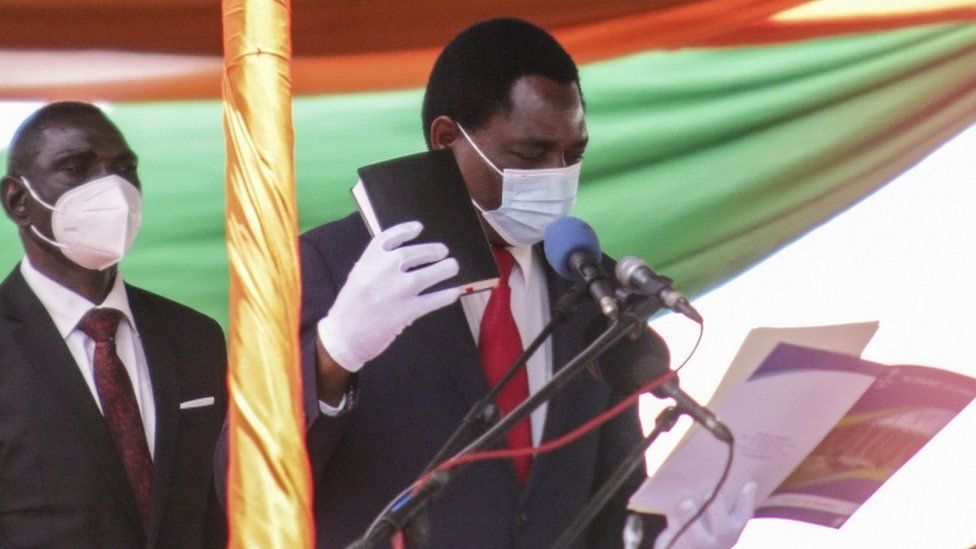HH Struggles to Fulfil Campaign Promises

IntroductionIn August 2021, Zambia witnessed a historic moment when Hakainde Hichilema, leader of the United Party for National Development (UPND), was elected as the country's seventh president. His victory marked a turning point in Zambian politics, as he promised sweeping changes and a brighter future for the nation. However, as the months have passed, it has become evident that President Hichilema is facing significant challenges in keeping his campaign promises. This article explores some of the hurdles and complexities he has encountered along the way.
- Economic Woes and Debt Crisis
One of President Hichilema's central campaign promises was to revitalize Zambia's struggling economy. During his campaign, he emphasized the need to create jobs, attract foreign investment, and reduce the country's debt burden. Unfortunately, the economic situation has proven to be a daunting challenge. Zambia was already grappling with a severe debt crisis before Hichilema took office, with an external debt burden estimated at over $12 billion.President Hichilema's administration has been working to negotiate with international creditors to restructure the country's debt. However, these negotiations have proven to be complex and time-consuming. In the meantime, the economy continues to face hardships, and job creation remains a pressing issue. Managing the economic crisis while trying to fulfill campaign promises is a delicate balancing act.
- High Expectations
Hichilema's election generated high expectations among the Zambian population. Many people anticipated rapid improvements in their living conditions, healthcare, education, and other essential services. The challenge lies in meeting these expectations in a short timeframe, especially given the country's precarious financial situation.The president has been under pressure to deliver quick results, and the longer it takes to see substantial improvements, the more difficult it becomes to maintain public trust and confidence. Managing these expectations and ensuring that his government's policies are realistic and sustainable is an ongoing challenge.
- Political Opposition and Divisions
Zambia's political landscape has long been marked by polarization and deep divisions. While Hichilema's victory represented a shift in power, there are still significant pockets of opposition and dissent within the country. Maintaining political stability and unity is crucial for implementing reforms and fulfilling campaign promises.President Hichilema has faced criticism from opposition parties, and his administration has been accused of being slow to implement promised reforms. Navigating these political challenges while staying focused on his agenda is proving to be a difficult task.
- Corruption and Governance Reforms
Fighting corruption was a central theme of Hichilema's campaign. He vowed to tackle corruption at all levels of government and promote transparency and accountability. However, implementing anti-corruption measures and governance reforms is a complex and long-term process.While the president has taken some initial steps, including dismissing some government officials accused of corruption, rooting out deeply entrenched corruption networks is a formidable task. It requires building strong institutions, fostering a culture of accountability, and enacting comprehensive reforms.
- Infrastructure Development and Service Delivery
Improving infrastructure and service delivery were also key campaign promises. Zambia faces challenges in providing quality healthcare, education, and basic amenities to its citizens. President Hichilema pledged to invest in these areas to enhance the quality of life for Zambians.However, the financial constraints imposed by the debt crisis have limited the government's ability to embark on large-scale infrastructure projects. Prioritizing which projects to undertake and finding alternative funding sources are crucial considerations in fulfilling these promises.
- Agricultural Transformation
Agriculture is a vital sector of Zambia's economy, and Hichilema's campaign promised to prioritize agricultural development. This included support for small-scale farmers, investment in modernizing the sector, and improving food security.Achieving these goals involves navigating complex issues, such as land tenure reform, access to credit, and climate change resilience. These challenges underscore the difficulties in translating campaign promises into concrete actions.
- International Relations and Diplomacy
President Hichilema also vowed to foster stronger relations with the international community and engage in diplomatic efforts to improve Zambia's standing on the global stage. Rebuilding international trust and attracting foreign investment are crucial for economic recovery.However, managing international relations while addressing domestic challenges is a delicate balance. The president must prioritize national interests while navigating global geopolitics and diplomatic negotiations.ConclusionPresident Hakainde Hichilema's journey to fulfill his campaign promises in Zambia has been marked by significant challenges and complexities. While his administration has taken initial steps in addressing some of the issues, the country's economic woes, high public expectations, political divisions, and the daunting task of fighting corruption have made the process more difficult.The road ahead for President Hichilema and Zambia is filled with obstacles that will require careful planning, strategic decision-making, and persistent efforts. Balancing the immediate needs of the country with the long-term goals outlined in his campaign promises will be a formidable task. Ultimately, the success of his presidency will be measured by his ability to navigate these challenges and bring about positive change for the people of Zambia.
